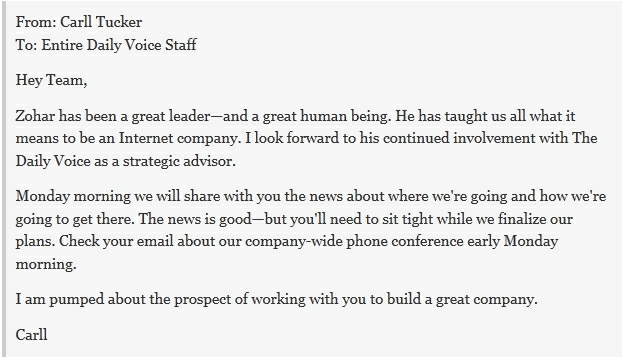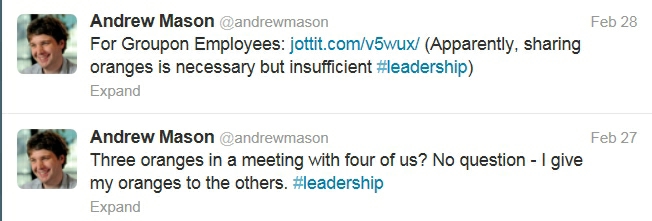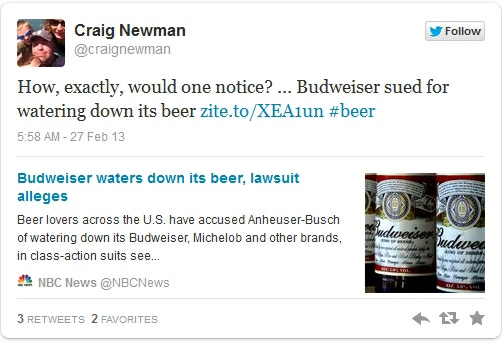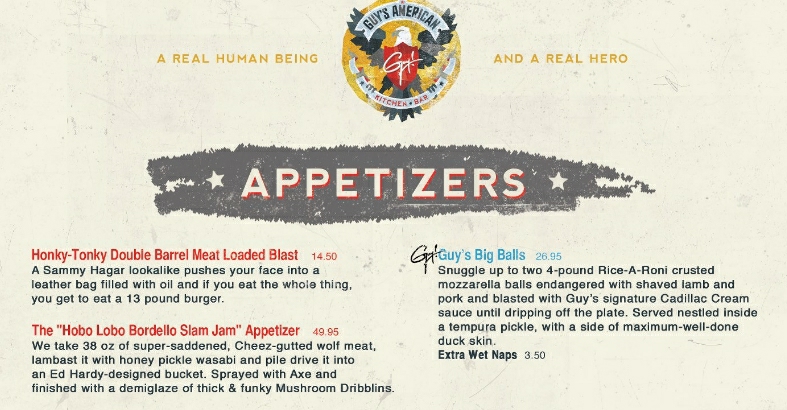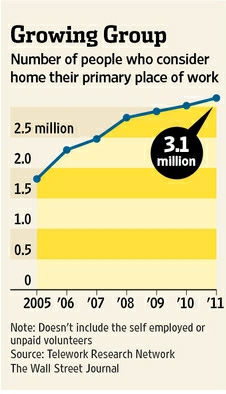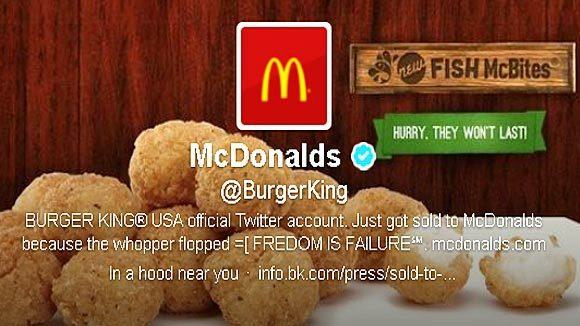Good Grammar Improves Job Prospects
A study by Grammarly examined 100 LinkedIn profiles and found that good grammar improved job prospects:
 "Professionals with fewer grammar errors in their profiles achieved higher positions.
Those who failed to progress to a director-level position within the
first 10 years of their careers made 2.5 times as many grammar mistakes
as their director-level colleagues.
"Professionals with fewer grammar errors in their profiles achieved higher positions.
Those who failed to progress to a director-level position within the
first 10 years of their careers made 2.5 times as many grammar mistakes
as their director-level colleagues.
"Fewer grammar errors correlate with more promotions. Professionals with one to four promotions over their 10-year careers made 45% more grammar errors than those with six to nine promotions in the same time frame.
"Fewer grammar errors associate with frequent job changes. Those who remained at the same company for more than 10 years made 20% more grammar mistakes than those who held six jobs in the same period. This could be explained in a couple of ways: People with better grammar may be more ambitious in their search for promising career opportunities, or job-hoppers may simply recheck their résumés between jobs."
One-hundred is a small sample size, but the results aren't surprising. In another survey, 11% of employers who checked applicants' social media posts did not hire them because of "poor communication skills." I might assume that included poor grammar.
Although few spelling mistakes were found on LinkedIn profiles, probably because of the spell-check feature, careless and grammatical errors could be a dealbreaker for your future employer.
Assignment Ideas:
- Review another student's LinkedIn profile. Do you find any errors? If so, how does this affect your opinion of him or her as a job candidate?
- Look at your Facebook page, if you have one. If you were a potential employer reviewing the page, what would be your impressions?
- Consider making changes to these sites and other social media spaces that employers may visit.
Is Yahoo!'s Hiring Process Too Long?
 Marissa Mayer, Yahoo!'s new CEO, is criticized once again. Recently, she made headline news for asking remote employees to work in an office. Now, her employees are taking issue with what they consider to be a long hiring process.
Marissa Mayer, Yahoo!'s new CEO, is criticized once again. Recently, she made headline news for asking remote employees to work in an office. Now, her employees are taking issue with what they consider to be a long hiring process.
Business Insider outlines her process, which includes teams of people interviewing each candidate and Mayer's final approval of every new hire. One employee complained to Business Insider, "It's a big waste of senior people's time to be sitting in all these interviews and generating all this paperwork & so on. And, teams suffer and productivity suffers while we endure the endless waits to bring people on."
Apparently, forms have to be filled out, and decisions can wait for weeks. Employees worry that Yahoo! is losing good candidates because offers aren't extended quickly enough.
But some of Mayer's requirements aren't unusual for technology companies. Google CEO Larry Page approves every hire, and Tim Page, AOL CEO, did the same when he first joined the company.
A little more control might be just want Yahoo! needs. Some say expenses are too high, and perhaps Yahoo! hasn't hired top talent in the past. Can we blame Mayer for acting like, well, a CEO?
Discussion Starters:
- As a job candidate, how long do you think the hiring process should take, from when you send your resume to when you receive a job offer?
- How would you handle a situation where you're waiting to hear from your first-choice employer and receive another offer?
MIT Media Lab SXSW Faux Pas
As the rest of us watch the snow fall, participants in the SXSW interactive festival in Austin are enjoying the technology, music, and general coolness of the event.
Festival mainstay MIT Media Labs surprised people with its promotional wristbands that many considered sexist. The bands were given to people who attended an MIT party.
In a blog post, the organization published this apology:
"We appreciate all of the feedback we've received about the party we hosted at The Parish Underground on Saturday night at SXSW. While we received a lot of positive responses, we want to address an issue with the wristbands that were given to people who came in the door. They were offensive and in no way reflect the sentiments of the MIT Media Lab. These wristbands were provided by the venue, and while we didn't realize what was printed on them until after they'd been handed out, we should have prevented the situation from occurring in the first place.
"The Media Lab is firmly committed to supporting women in the sciences, computing, arts, and engineering. We don't like – and certainly don't want to support or disseminate – offensive messaging. We appreciate those of you who noticed the wristbands and pointed them out to us; please accept our sincere apology."
Discussion Starters:
- What's your reaction to the wristbands: clever marketing, offensive, or something else?
- What's the significance, if any, of MIT Media Labs distributing the wristbands at SXSW?
- How do you assess the organization's apology?
Hyundai Apologies for Ad Capitalizing on Murdered Baby
Hyundai Motor Company has apologized for a social media post linking car safety to a murdered two-month-old baby. The baby was abducted from an SUV and then strangled and buried in the snow. Of course, people were horrified by the event and took to Weibo, China's microblogging site for consolation and updates.
A post on Hyundai's Weibo account referenced the new Santa Fe SUV's safety features. The company says it was posted by a non-employee and has since deleted the post:
"A few thoughts following the Changchun stolen car and child incident: When buying a car it's completely okay to choose brands with better technology. Tianhe Buicks carry the OnStar GPS system, which can track down the location of a stolen vehicle at any time and automatically report it to the police. Feel at ease, have peace of mind, if you're going to buy a car, why not choose a completely safe Buick!!!. Sales Hotline: 024-86547880 86547881 QQ:521279389 2523275273 www.inthbuick.com"
In an email to Bloomberg, Hyundai apologized:
"We pledge to be more vigilant in managing our social networking service accounts, while we send our deepest condolences to the victim's family. Hyundai Motor is a responsible corporate citizen that is not in the practice of taking advantage of tragic incidents."
According to Bloomberg, GM has been more reluctant to comment:
"Dayna Hart, a Shanghai-based spokeswoman for GM, which owns the Buick brand, said the U.S. automaker is monitoring the situation and isn't ready yet to comment."
Aside from the egregious overuse of exclamation marks, the post does what other brands have regretted: "newsjack"-take advantage of news for the purpose of sales. Some strategies work well, such as Oreo's tweet during the Super Bowl. But many others have failed because of poor taste and inevitable backlash.
Discussion Starters:
- What other companies have tried newsjacking and failed?
- If you were consulting for a company, what criteria would you identify to help the management team decide whether to hook into something trending on Twitter or Weibo?
Carnival Responds to More Ship Trouble
Generator trouble on Carnival Dream, docked at St. Maarten, caused a problem no company wants to explain: non-working toilets, the second publicized incident for Carnival within the past month.
A discrepancy seems to exist between passengers' accounts and Carnival's position. According to CNN, passenger Gregg Stark said,
"There's human waste all over the floor in some of the bathrooms and they're overflowing -- and in the state rooms. The elevators have not been working. They've been turning them on and off, on and off."
Jonathan Evans, another passenger, emailed CNN:
"We are not allowed off of the boat despite the fact that we have no way to use the restrooms onboard. The cruise director is giving passengers very limited information and tons of empty promises. What was supposed to take an hour has turned into 7-plus hours."
But Carnival posted this message on its Facebook page:
"We know there have been questions on the conditions onboard Carnival Dream last night and wanted to update you. We have had multiple conversations with the ship's management team. Based on the ship's service logs and extensive physical monitoring of all public areas, including restrooms, throughout the night, we can confirm that only one public restroom was taken offline for cleaning based on toilet overflow and there was a total of one request for cleaning of a guest cabin bathroom. Aside from that there have been no reports of issues on board with overflowing toilets or sewage. The toilet system had periodic interruptions yesterday evening and was fully restored at approximately 12.30am this morning."
Discussion Starters:
- CEO Gerry Cahill gave a press conference during the recent Triumph situation. If he were to give another conference, how should this one be different? What can Cahill do to rebuild trust in the Carnival brand?
- Trouble started during the last part of a seven-day trip. The company is reimbursing passengers for three days of the trip and is offering half off a future cruise. Carnival has been criticized for insufficient compensation in the past. Is this deal appropriate?
Weight Watchers Employees Weigh in on Compensation
Frustrated by big payouts for celebrity endorsers, Weight Watchers employees have taken to airing their complaints on a message board hosted by the company.
The New York Times published an article highlighting the pay gap. As one employee said, "They know my love for the program, but I can't say we're treated right. We are professionals, we have to dress nice, but we are paid less than kids who work at McDonald's." As celebrities Jessica Simpson and Jennifer Hudson collect millions of dollars for their endorsements, many Weight Watcher employees are paid minimum wage.
Company CEO David Kirchhoff, responded to employees' complaints: "One of our top priorities is to improve your working life at Weight Watchers, and in particular, the way we reward you for the incredible work you do."
On his blog, Mr. Media Training, Brad Phillips speculates about what Weight Watchers could have done differently:
"I couldn't help thinking that Weight Watchers could have helped prevent this story from bubbling up to the surface simply by moderating their site more carefully. Sure, nothing would have stopped employees from complaining on third party websites, but it would have been much more difficult for them to communicate without a central website to visit, especially because the workforce is diffused and decentralized."
Discussion Starters:
- Do you agree with Brad Phillips' assessment?
- What else could the company have done differently to prevent employee sentiment from becoming public?
- How else could the company have managed employees' communications?
Set Up for Disappointment at the Daily Voice
At the Daily Voice, a group of local-news websites, we see another example of how the indirect style is ill conceived in bad-news messages. Based on this Friday email, would employees expect layoffs on Monday? Carll Tucker is the company chairman, and Zohar Yardeni was the CEO, who recently resigned.
On Monday, the good news came: all 11 of the company's Massachusetts sites would be closed, and major layoffs would take place in Connecticut and New York.
Sounds like bad news to me.
Gawker offered this advice:
"...we would not advise applying for one of the Town Reporter positions currently posted on the Daily Voice's site. If the phone interview goes well, they'll bring you in the next day to punch you in the face."
Discussion Starters:
- What is a better approach for the news of layoffs?
- When is it appropriate to use the indirect style for bad-new messages?
Travel Blogger Thrown Off United Flight for Taking Pics
On a United Airlines flight from Newark to Istanbul, a passenger was asked to deplane after taking pictures of his seat and surroundings. A flight attendant asked Matthew Klint to stop using his camera, and pointed to this blurb in Hemisphere, United's in-flight magazine:
 According to Klint's version of events, he smiled at the flight attendant and stopped taking pictures. But, a while later, he did ask her to hang up his coat and continued the conversation:
According to Klint's version of events, he smiled at the flight attendant and stopped taking pictures. But, a while later, he did ask her to hang up his coat and continued the conversation:
"I want you to understand why I was taking pictures. I hope you didn't think I was a terrorist. Here is my business card [offering her one]. I write about United Airlines on an almost-daily basis and the folks at United in Chicago are even aware of my blog."
A Global Services representative then asked Klint to leave the plane: "The captain is not comfortable with you on this flight. You'll need to gather your things, and we'll find another way to get you to Istanbul." Klint then had a conversation with the captain, which you can read in Klint's blog post. During the conversation, the captain (apparently, not making eye contact) said that the flight attendant asked Klint to stop pictures, but he did not. Klint said, "Your FA is lying-I did not disobey any crewmember instruction." This continues to be a topic of debate.
Others on the flight seem to agree with Klint's telling of the story. In an NBC News article about the incident, Klint admits, "perhaps I should not have used the term ‘terrorist.'"
Klint has reported good contact with United, which is conducting an investigation. In the meantime, Klint has an interesting perspective on corporate apologies and says he doesn't expect one from United:
"At this point, United has not offered an apology and frankly I am not expecting one. An apology would reflect horribly on the pilot and FA and I do understand the delicacy of corporate apologies in general. United did express an appreciation for my loyalty and a desire to see me continue to fly on the carrier."
Well, Matthew, there are many types of apologies.
Discussion Starters:
- Based on Klint's version of the story, did United do the right thing? Could the airline have done anything differently?
- We haven't heard much from United yet. What could be the airline's position?
- How could United apologize without reflecting "horribly on the pilot and FA," as Klint says?
Arguments for Remote Workers
The buzz after Yahoo!'s come-to-the-office email hasn't died down yet. Business Insider has jumped on the critic-wagon, suggesting that Yahoo! take an approach similar to Google's.

In an article with the descriptive title, "Marissa Mayer Should Have Used Google's Excellent Argument To Bring Remote Workers Back," Business Insider reminds us that Google was Marissa Mayer's employer before she joined Yahoo!. Although she may have been inspired by the Google culture to encourage remote employees to come to the office, she missed some of the obvious persuasive arguments, according to writer Max Nisen.
Nisen highlights two differentiators between Yahoo!'s recent message and how Googlers are encouraged to and rewarded for coming to the office. In addition to emphasizing the "magical moments" that Google employees share when they are in the same space, Google offers significant benefits for employees to be in the same physical location: "great food, amazing offices, and great amenities."
Nisen also suggests that Yahoo! could sell the tax benefits to employees, particularly how the benefits save employees money. Perks offered in the office are considered fringe benefits and are not taxable income. He points to DealBook's Victor Fleischer's assessment of the tax benefits of working in an office:
"Suppose Abe works at Yahoo, makes $150,000 a year and is taxed at an effective 33 percent rate, thereby paying $50,000 in taxes. Bridget, by contrast, makes $120,000 and also enjoys $30,000 of untaxed fringe benefits.
"Bridget's tax liability is only $40,000 (33 percent of $120,000), meaning that she pays $10,000 (or 20 percent) less in taxes, yet received the same economic compensation as Abe."
Yahoo! could have done a better job of communicating its message. This could have saved some backlash for the company and perhaps have clarified the intent-and the benefits-of having employees come to an office.
For more about the benefits and challenges of remote workers, read Cornell ILR's summary.
Discussion Starters:
- How, if at all, do you think this suggested approach would have helped Yahoo! with the initial announcement?
- Other than the initial response of "This isn't a broad industry view on working from home. This is about what is right for Yahoo right now," we have heard little from Yahoo! since the controversy. What, if anything, should the company say at this point?
Study: How Twitter Sentiment Compares to Public Opinion
We should be careful about drawing conclusions about overall public opinion based on tweets, according to a recent Pew study. Sometimes reactions on Twitter are more politically liberal, while at other times, they are more conservative. Often, they are more negative.
For example, when a California law last year banning same-sex marriage was found to be unconstitutional, Twitter conversations were much more positive (46%) than negative (8%). These results contrast sharply with a general opinion poll showing 33% to be positive and 44 to be negative.
Reactions to the presidential election also ran more positively on Twitter, with most users supporting President Obama. However, reactions to the president's State of the Union address were far more negative on Twitter than in the general population.

One explanation of these differences and inconsistencies is the small percentage of people who get news from and participate on Twitter. Only 13% of adults read Tweets, and only 3% regularly or sometimes tweet or retweet news. Users are not a representative sample of the U.S. population; for example, Twitter users include those under 18 and people outside the United States, while opinion surveys exclude both groups.
Discussion Starters:
- What else could account for more negativity on Twitter?
- Research Twitter demographics. What, if any, other conclusions can you draw about its users?
Yale Sex Survey Debunked
Who can resist a compelling headline? "Nine Percent of Yale Students Surveyed Say They've Accepted Money for Sex," an article in The College Fix, didn't give us the full picture. Skeptics might ask questions such as, "Who was surveyed and under what conditions?" and "How many people were included in the sample?"
As it turns out, the survey was taken during a "Sex Weekend" workshop for participants to "learn about masochistic sexual practices such as those depicted in 50 Shades of Grey," according to a Yale Daily News reporter. Does this group represent the typical Yale student?
How many students at the workshop completed the survey is unclear. The Yale Daily News reports that 55 students attended the workshop, but Business Insider claims that only 40 students were asked to complete the survey. Using Business Insider's numbers, four students said they were paid for sex.
Bottom line: Don't believe everything you read.
Discussion Starters:
- What would be a better way to administer a survey to Yale students to get a more representative sample? What categories of students would need to be included?
- How many responses would you consider before making a claim about students' sexual behavior?
Facility Stands By Decision Not to Perform CPR
 An independent living center is defending a staff member who refused to give CPR to a woman who died.
An independent living center is defending a staff member who refused to give CPR to a woman who died.
At Glenwood Gardens in Bakersfield, CA, a staff member called 911 when 87-year-old Lorraine Bayless was found lying on the floor, not breathing and with no pulse. Fire dispatcher Tracey Halvorson asked the woman to administer CPR, but she refused. The facility didn't have a do-not-resuscitate order on file for Bayless.
According to the 911 tape, the fire dispatcher tried several times to get someone to administer CPR:
- "EMS takes the liability for this."
- "Is there a gardener? Or any staff? ... Can we flag someone down in the street and get them to help this lady? Can we flag a stranger down? I bet a stranger will help her."
- "Is there anybody there that's willing to help this lady and not let her die?"
In response to the last question, the staff member said, "Not at this time."
Christopher Finn, a spokesperson for Brookdale Living Center, which owns the facility, said that, although the staff member is a nurse, she was "serving in the capacity of a resident services director, not as a nurse." Finn also explained that Glenwood Gardens, "is an independent living facility, which by law is not licensed to provide medical care to any of its residents."
The executive director of Glenwood Gardens further stated, "In the event of a health emergency at this independent living community, our practice is to immediately call emergency personnel for assistance and to wait with the individual needing attention until such personnel arrives."
Discussion Starters:
- Based on the statements of Brookdale and Glenwood so far, do you find the staff member's refusal justified?
- What, if anything, else should the company representatives say about the incident?
Fired Groupon CEO's "Just Kidding" Email
It's not every day that a terminated CEO writes "just kidding" in his final email to employees. Firedafter annoucing more disappointing quarterly results, Groupon founder and CEO Andrew Mason tweeted a link to the full email on Jottit himself, noting, "(This is for Groupon employees, but I'm posting it publicly since it will leak anyway)."
In the memo to employees, Mason explains how he feels leaving he company he started:
People of Groupon,
After four and a half intense and wonderful years as CEO of Groupon, I've decided that I'd like to spend more time with my family. Just kidding - I was fired today. If you're wondering why... you haven't been paying attention. From controversial metrics in our S1 to our material weakness to two quarters of missing our own expectations and a stock price that's hovering around one quarter of our listing price, the events of the last year and a half speak for themselves. As CEO, I am accountable.
You are doing amazing things at Groupon, and you deserve the outside world to give you a second chance. I'm getting in the way of that. A fresh CEO earns you that chance. The board is aligned behind the strategy we've shared over the last few months, and I've never seen you working together more effectively as a global company - it's time to give Groupon a relief valve from the public noise.
For those who are concerned about me, please don't be - I love Groupon, and I'm terribly proud of what we've created. I'm OK with having failed at this part of the journey. If Groupon was Battletoads, it would be like I made it all the way to the Terra Tubes without dying on my first ever play through. I am so lucky to have had the opportunity to take the company this far with all of you. I'll now take some time to decompress (FYI I'm looking for a good fat camp to lose my Groupon 40, if anyone has a suggestion), and then maybe I'll figure out how to channel this experience into something productive.
If there's one piece of wisdom that this simple pilgrim would like to impart upon you: have the courage to start with the customer. My biggest regrets are the moments that I let a lack of data override my intuition on what's best for our customers. This leadership change gives you some breathing room to break bad habits and deliver sustainable customer happiness - don't waste the opportunity!
I will miss you terribly.
Love,
Andrew
A New York Times blog entry noted a "trend toward bluntness":
"It was inevitable that this trend toward bluntness would arise in the tech world, where failure is seen above all as an opportunity for spiritual growth."
Discussion Starters:
- What's your view of a CEO's posting internal bad-news messages online? Consider another recent examples: RealNetwork's layoff memo. What are the arguments for and against the decision?
- Assess Mason's email to employees. If you worked for Groupon from the early days, how do you think you might react? How would you feel about continuing to work for the company?
Anheuser-Busch Defends Its Beer
Anheuser-Busch is responding to lawsuits claiming that several brands are watered down and mislabeled. The company is accused of misrepresenting the alcohol content on Michelob, Michelob Ultra, Bud Ice, Bud Light Platinum,Hurricane High Gravity Lager, King Cobra, Busch Ice, Natural Ice and Bud Light Lime.
According to an article in the LA Times, former employees are siding with the plaintiffs, supporting the claim that the lead attorney on the case, Josh Boxer, calls "a matter of corporate practice" and "a simple cost-saving measure." Boxer says that water is added right before the bottling process, diluting alcohol content by 3 to 8 %.
In a statement, Peter Kraemer, Anheuser-Busch vice president of brewing and supply, denied the claims:
"Our beers are in full compliance with all alcohol labeling laws. We proudly adhere to the highest standards in brewing our beers, which have made them the best-selling in the U.S. and the world."
The news inspired fun on Twitter, such as this tweet by the managing editor for the Chicago Sun-Times:
Discussion Starters:
- Assess Anheuser-Busch's statement. In what ways is it effective and ineffective?
- How does this story relate to the recent news of Subway's 11-inch foot-long sandwich? In what ways are they different? Compare the companies' approaches, given the similarities and differences.
More Creative Ways to Job Hunt
Finding a new job is getting more and more social-and bizarre. A social media strategist posted an ad on Facebook and received "multiple offers."
Ian Greenleigh, author of The Social Side Door: How Social Media Has Rewritten the Rules of Access and Influence, tried a second experiment. Billing himself as a "Future Googler," he targeted current Google employees for his next Facebook ad. Forty-eight clicked on the link.
One in six job seekers say that social media helped them get their current job. "Social resumes" today go beyond having a LinkedIn profile. Rather, they represent your entire online presence.
On the other hand, creative tactics don't have to involve technology. One inventive marketing professional distributed resume chocolate bars to potential employers.
Discussion Starters:
- Which of these ideas might you try? What are the risks of each?
- What other creative approaches have you taken to search for a job?
Fake Menu for Guy Fieri's Restaurant
Note to business owners: register all web domains similar to your company's name. Guy Fieri didn't, and a prankster created a fake menu on guysamericankitchenandbar.com. Fieri's restaurant is at the URL GuysAmerican.com, and the fake menu is a good visual imitation of the real one.
Bryan Mytko had some fun with the idea and bragged about it on Twitter:
This is the second time Fieri is doing damage control in the past few months. The fake menu follows a scathing New York Times review of Fieri's restaurant.
Discussion Starters:
- What other domains should Guy Fieri have registered? At Easy Who Is, check a few more similar names to see who owns them.
- Should Guy Fieri try to get the domain back? If the owner wants him to pay, what do you think would be an appropriate price?
Ikea Responds to Horse Meat Scandal
Swedish furniture store Ikea is the latest to be implicated in the horse meat scandal that has shaken European consumers. Beginning in Ireland last month, horse meat was discovered in several beef products. Ready-to-eat meals in several countries have been recalled, such as frozen beef lasagna in Sweden, which consisted of between 60 and 100% horse meat.
Horse meat was found in Ikea's popular meatballs, and stores have stopped selling them in the Czech Republic and 13 other European countries. Other locations, which have different meat suppliers, are continuing to sell the meatballs in the in-store cafeteria and as frozen food, packaged for purchase.
The world's largest furniture retailer posted a statement on its website to reassure U.S. customers:
IKEA US Meatball Content is Only Pork and Meat Products
IKEA is committed to serving and selling high quality food that is safe, healthy and produced with care for the environment and the people who produce it. We do not tolerate any other ingredients than the ones stipulated in our recipes or specifications, secured through set standards, certifications and product analysis by accredited laboratories.
In the "pink slime" scandal last year, which accused U.S. beef manufacturers of using an ammonia-infused additive, Beef Products Inc. was, similarly, on the defensive.
Discussion Starters:
- Ikea claims that its own tests revealed no horse DNA. Did the company do the right thing by pulling the meatballs?
- Assess Ikea's statement to U.S. customers. What is effective about this response, and what, if anything, could be improved?
- What does "[sic]" mean in the statement above? What is the issue?
Yahoo! Email: No More Working from Home
New Yahoo! CEO Marissa Mayer is making her mark, but she's ruffling a few feathers. In an email to employees, HR head Jackie Reses asks "all employees with work-from-home arrangements to work in Yahoo! offices." As expected, remote employees aren't too happy about the change.
YAHOO! PROPRIETARY AND CONFIDENTIAL INFORMATION - DO NOT FORWARD
Yahoos,
Over the past few months, we have introduced a number of great benefits and tools to make us more productive, efficient and fun. With the introduction of initiatives like FYI, Goals and PB&J, we want everyone to participate in our culture and contribute to the positive momentum. From Sunnyvale to Santa Monica, Bangalore to Beijing - I think we can all feel the energy and buzz in our offices.
To become the absolute best place to work, communication and collaboration will be important, so we need to be working side-by-side. That is why it is critical that we are all present in our offices. Some of the best decisions and insights come from hallway and cafeteria discussions, meeting new people, and impromptu team meetings. Speed and quality are often sacrificed when we work from home. We need to be one Yahoo!, and that starts with physically being together.
Beginning in June, we're asking all employees with work-from-home arrangements to work in Yahoo! offices. If this impacts you, your management has already been in touch with next steps. And, for the rest of us who occasionally have to stay home for the cable guy, please use your best judgment in the spirit of collaboration. Being a Yahoo isn't just about your day-to-day job, it is about the interactions and experiences that are only possible in our offices.
Thanks to all of you, we've already made remarkable progress as a company - and the best is yet to come.
Jackie
Hiding Under a Desk Isn't the Best PR Strategy
No one wants to be on camera when a tough story is brewing, but hiding under a desk isn't the best move-and it backfired on a receptionist at a real estate company.
For two years, Deborah Smith tried to get a dangerous tree cut down on her neighbor's property, owned by Roberts Brothers Properties. When a reporter showed up on her behalf, he saw the receptionist dip under her desk. She stayed there for 30 minutes.
The situation is silly-and embarrassing for the receptionist. But corporate communicators can learn a few lessons from the scene: 1) don't delay small requests that may turn into PR nightmares, and 2) train your receptionist to handle the media. This isn't the first time Roberts Brothers Properties has been in a dispute: last year, the company settled a lawsuit with Bank of America for $35 million. Given the history, the brothers' staff should be better prepared.
Discussion Starters
- Do you blame the receptionist for the incident, empathize with her, or something else?
- In media training for staff (particularly front line staff such as a receptionist), what would be important to include?
Burger King's Twitter Feed Hacked
Burger King is the latest victim of Twitter hacking. With its page image turned into a McDonald's logo, the company suffered embarrassment for an hour before Twitter closed down the account.
Within this time, the hacker offended Burger King employees, promoted a musician, and claimed that the company had been sold to McDonald's. The first tweet was, "We just got sold to McDonalds! Look for McDonalds in a hood near you." Another tweet read, "We caught one of our employees in the bathroom doing this..." with a photo of someone shooting a syringe into his arm.
During the incident, @McDonald's tweeted, "We empathize with our @BurgerKing counterparts. Rest assured, we had nothing to do with the hacking."
Burger King shared this statement with Mashable:
When Burger King regained control of its Twitter feed, the writer acknowledged the thousands of new followers and tweeted, "Interesting day here at Burger King, but we're back! Welcome to our new followers. Hope you all stick around!"
Meanwhile, Twitter is under fire for so many recent hacks. In response, the site may institute two-factor authentication, which requires a user to respond to a text message before gaining access to the account from a mobile device. Facebook, Google, and Dropbox already have similar processes in place.
Discussion Starters:
- How do you think the hacking occurred? Where might Burger King have vulnerabilities in its Twitter feed or process?
- How do you assess Burger King's response? What, if anything, could the company have done differently?









